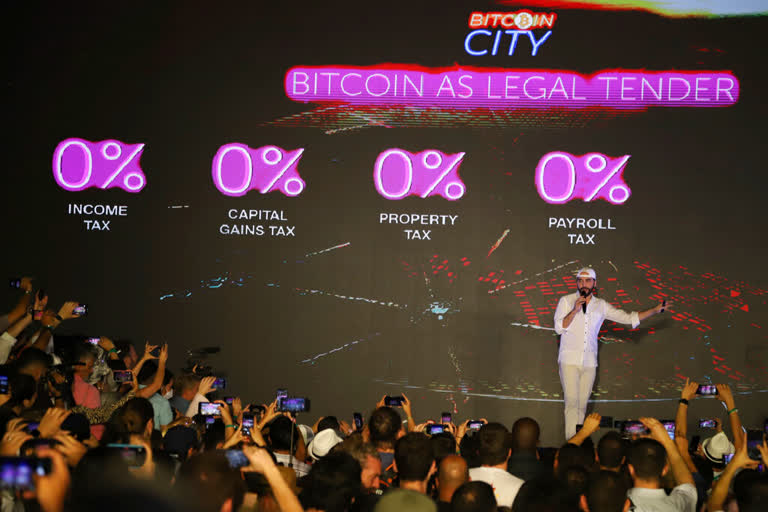LA LIBERTAD: El Salvador President Nayib Bukele, recently, announced that his government will build an oceanside "Bitcoin City" at the base of a volcano in southeastern El Salvador on the Gulf of Fonseca.
El Salvador, the first country to make the cryptocurrency legal tender, will build "Bitcoin City" near the Conchagua volcano to take advantage of geothermal energy to power both the city and Bitcoin mining — the energy-intensive solving of complex mathematical calculations day and night to verify currency transactions.
Revealing his plans on "Bitcoin City", Bukele said that the only tax collected there will be the value-added tax, half of which will be used to pay the municipal bonds and the rest for municipal infrastructure and maintenance.
According to Bukele, there would be no property, income or municipal taxes and the city would have zero carbon dioxide emissions.
The government will provide land and infrastructure and work to attract investors, he said. A bond offering would happen in 2022 entirely in Bitcoin, he added.
Read: Don’t get greedy; crypto is not for getting rich quick: WazirX founder
Speaking at the closing of the Latin American Bitcoin and Blockchain Conference in El Salvador, Bukele told the cheering crowd, "Invest here and earn all the money you want."
He said the city would be built with attracting foreign investment in mind. There would be residential areas, malls, restaurants and a port.
Bitcoin has been legal tender alongside the U.S. dollar since Sept. 7.
The government is backing Bitcoin with a $150 million fund. To incentivize Salvadorans to use it, the government offered $30 worth of credit to those using its digital wallet.
Critics have warned that the currency's lack of transparency could attract increased criminal activity to the country and that the digital currency's wild swings in value would pose a risk to those holding it.
Bitcoin was originally created to operate outside government-controlled financial systems and Bukele says it will help attract foreign investment to El Salvador and make it cheaper for Salvadorans living abroad to send money home to their families.
(With AP inputs)



